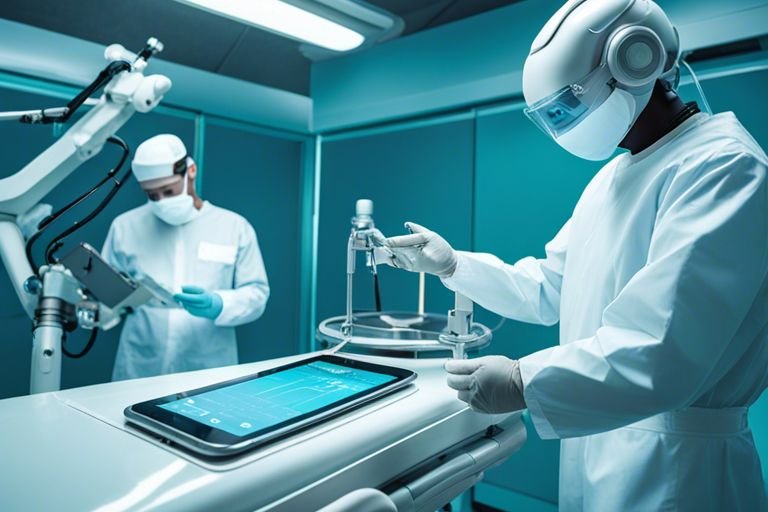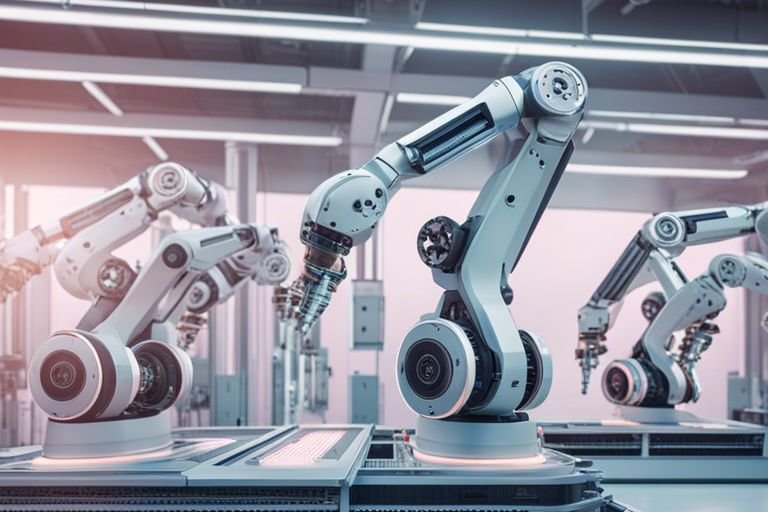Can AI be utilized to improve healthcare and medical treatments?

Have you ever wondered about the potential of artificial intelligence in revolutionizing the realm of healthcare and medical treatments? The integration of AI into the healthcare industry has shown significant promise in enhancing patient care, streamlining administrative tasks, and even aiding in the diagnosis and treatment of various medical conditions.
With the ability to process large volumes of data at a rapid pace, AI has the potential to improve accuracy and efficiency in medical imaging, drug discovery, and personalized treatment plans. Additionally, AI-powered tools can assist medical professionals in predicting potential health issues before they even occur, ultimately leading to early intervention and improved patient outcomes. However, there are also concerns about data privacy and the ethical implications of using AI in healthcare. Despite these challenges, the opportunities for AI to transform and enhance healthcare and medical treatments are boundless.
Key Takeaways:
- AI can enhance accuracy: By analyzing vast amounts of healthcare data, AI can help healthcare providers make more accurate diagnoses and treatment plans.
- AI can improve patient outcomes: With the assistance of AI, medical treatments can be tailored to individual patients, leading to better outcomes and reduced healthcare costs.
- AI integration requires careful consideration: While AI shows potential for improving healthcare, it’s crucial to ensure that patient privacy and data security are prioritized in the integration process.
AI in Medical Diagnostics
Any discussion about the potential of AI in healthcare and medical treatments would not be complete without delving into the field of medical diagnostics. This is an area where AI has the potential to revolutionize the way diseases are detected and diagnosed, ultimately leading to more effective treatments and improved patient outcomes.
Machine Learning for Disease Detection
One of the most promising applications of AI in medical diagnostics is in the development of machine learning algorithms for disease detection. These algorithms have the ability to analyze vast amounts of medical data, including patient records, imaging studies, and genetic information, to identify patterns and make accurate predictions. By leveraging these algorithms, healthcare professionals can detect diseases at an earlier stage, when treatment is more likely to be successful. Additionally, machine learning algorithms can help in the identification of subtle and complex patterns that may not be immediately apparent to human eyes, allowing for more accurate and timely diagnosis.
Enhanced Imaging Analysis
Another area where AI is making significant strides in medical diagnostics is in the realm of enhanced imaging analysis. Imaging technologies such as MRI, CT scans, and X-rays generate enormous amounts of data that can be challenging for healthcare professionals to interpret accurately. AI-powered algorithms, however, are capable of rapidly and accurately analyzing these imaging studies to detect abnormalities and provide insights that may have otherwise gone unnoticed. By assisting in the interpretation of medical images, AI has the potential to improve diagnostic accuracy and reduce the likelihood of human error.
AI in Treatment Personalization
Obviously, when it comes to healthcare and medical treatments, personalized care is crucial for better patient outcomes. This is where AI plays a significant role in treatment personalization. By utilizing AI, healthcare providers can analyze large amounts of patient data to create personalized treatment plans that are tailored to your specific needs and conditions.
Predictive Analytics for Tailored Therapies
AI enables the use of predictive analytics to determine the most effective therapies for individual patients. By analyzing your medical history, genetics, lifestyle, and other relevant data, AI can predict how you are likely to respond to different treatment options. This can help your healthcare provider to prescribe treatments that are more likely to be effective for you, reducing the need for trial and error.
AI-driven Drug Discovery and Development
AI is revolutionizing the drug discovery and development process, leading to the creation of more targeted and effective medications. By analyzing vast amounts of molecular and clinical data, AI can identify potential drug candidates and predict their efficacy and safety. This means that you may have access to new, more personalized medications that are tailored to your unique biological makeup, leading to better treatment outcomes.
Operational Efficiency and Patient Care
Keep in mind that one of the most beneficial aspects of utilizing AI in healthcare is its ability to improve operational efficiency and patient care. By automating routine tasks and streamlining processes, AI can help healthcare facilities run more smoothly and provide better care for patients.
AI in Hospital Management and Workflow Optimization
AI can be utilized to optimize hospital management and workflow, allowing for more efficient utilization of resources and staff. For example, AI-powered scheduling systems can analyze data to predict patient flow and allocate resources accordingly, reducing waiting times and improving overall patient experience. Additionally, AI can help in managing inventory by predicting supply needs and reducing wastage, ultimately leading to cost savings for the healthcare facility.
Improving Patient Experience and Engagement
Another crucial aspect of AI in healthcare is its ability to improve patient experience and engagement. Through virtual assistants and chatbots, AI can provide personalized support and information to patients, helping them navigate their healthcare journey more effectively. This not only improves patient satisfaction but also allows healthcare providers to focus on more complex tasks, ultimately enhancing the overall quality of care.
By integrating AI into healthcare management and patient care, you can achieve greater operational efficiency, improve patient experience, and ultimately provide better outcomes for your patients. It’s important to stay updated on the latest advancements in AI technology and consider how they can be leveraged to benefit your healthcare facility. This proactive approach can not only improve your operations but also positively impact the lives of those you care for.

Ethical and Practical Challenges
Unlike other industries, the healthcare sector faces unique ethical and practical challenges when it comes to integrating AI into medical treatments. The balance between innovation and patient safety is crucial, and it’s essential to address these challenges to ensure the responsible and effective implementation of AI in healthcare.
Addressing Data Privacy and Security
When utilizing AI in healthcare, ensuring the privacy and security of patient data is of utmost importance. Your sensitive medical information could be at risk if proper measures are not in place to safeguard it. It’s essential for healthcare organizations and AI developers to implement robust data encryption and access control measures to protect your personal information. Additionally, regular security audits and compliance with data privacy regulations should be mandatory to mitigate any potential breaches and protect patient confidentiality.
Navigating the Regulatory Landscape
Integrating AI in healthcare also requires navigating the complex regulatory landscape. This directly impacts your access to AI-powered medical treatments and the standards of care you receive. The regulatory requirements for AI-driven medical devices and treatment algorithms need to be clearly defined to ensure their safety, efficacy, and reliability. It’s crucial for healthcare providers and AI developers to adhere to regulatory guidelines to provide you with the best possible care while maintaining high ethical standards.
Conclusion
With these considerations in mind, it is evident that AI can indeed be utilized to improve healthcare and medical treatments. From diagnostic tools to personalized treatment plans, AI has the potential to revolutionize the way we approach healthcare. By harnessing the power of data and machine learning algorithms, healthcare professionals can make more accurate and timely decisions, ultimately leading to better patient outcomes. While there are challenges and ethical considerations to address, the benefits of integrating AI into healthcare are undeniable. Embracing AI in medicine is not a question of if, but when. As the field continues to evolve, it is important to stay informed and open to the possibilities that AI holds for the future of healthcare.



